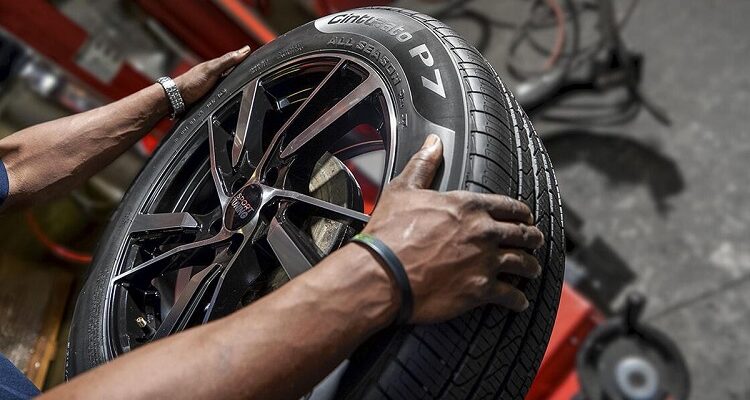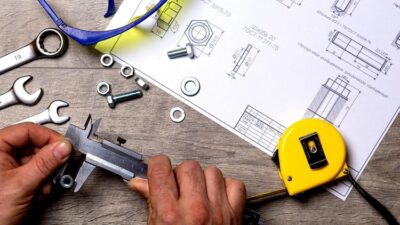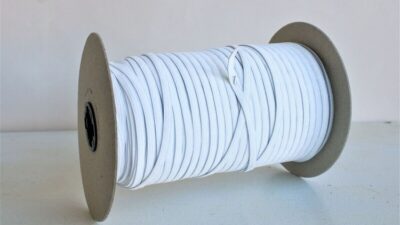You’re driving down the road when your car begins to shake. As you get further along, your tire pressure light comes on, so you stop at a nearby gas station.
That’s when you notice how cracked your tires are. The rubber is even beginning to bulge out a bit. It might be time for you to get new ones.
There’s a lot that you need to keep in mind before you buy tires. If you choose ones that won’t stand up to your climate or fit your driving style, they won’t last long. Check out these essential shopping tips before you head to the store.
Table of Contents
Is It Time to Buy Tires?
Before you spend a bunch of money on new tires, it’s important to know if it’s even necessary. Cracks in the rubber and a shaking car are two obvious signs.
If you ignore the problem for too long, your tire pressure light will come on. You can head to a gas station and put some air in your tires, but if they’re wearing out, this will only serve as a temporary solution.
If you’re not completely sure if the tires are wearing out, go ahead and perform the penny test. Grab a penny and stick it into the tire’s tread with the Lincon head facing you. If the tread is covering the top of Lincoln’s head or more, you need to start looking for a replacement ASAP.
Putting the issue off can be dangerous. You see, as your tires wear out, your tread grooves will begin to become smooth. When this happens, they won’t be able to wick moisture away from the treads like they used to.
Your tires will have no grip when you take your car out on rainy roads. All the water will stay on the treads, which will increase your risk of hydroplaning off the road.
What Kind of Weather Do You Have?
So, you know that you need new tires. The question is, which ones should you get? The first thing that you need to consider is the weather.
All-season tires are a good option. As the name suggests, they can handle the harsh road conditions that come with the rain, winter, and summer weather, as long as it doesn’t get too bad.
If you see a lot of ice and snow in your area, you’ll need to upgrade to snow tires. Summer tires are made with a tough rubber that can stand up to the hot asphalt.
What’s Your Car Model?
All tires aren’t made equal. You wouldn’t buy new tires for a truck and place them on a tiny sports car, for example. They wouldn’t fit.
Sedans and SUVs can use the same tires, but even then you want to be careful. Depending on how you drive and the weight of the vehicle, things might not work out.
Consider Your Driving
Take a moment to think about what you’re using your car for. If you’re only going to be going back and forth to work, you won’t need high-performance tires.
You might need to upgrade if you’re planning to use your vehicle to tow a trailer, however. Do you tend to stick to the pavement, or do you find yourself off-road more often than not? Standard tires won’t cut it if your answer is the latter.
Look For a Warranty
Let’s say you’re driving down the road when your brand new tire falls apart. You almost skid into oncoming traffic, but you manage to stay in your lane and get your car over to the side of the road.
Pop the donut on your car and head back to the store where you got your tires. You might be able to get new ones at no cost to you if they were under warranty.
The warranty is important for a few reasons. Like in our example, you have no way of knowing when something is going to happen to your tires. You can also guess how long the new tires are going to last by looking at how long the warranty is in effect.
Create a Budget
Finding the best tires to buy shouldn’t mean that you have to empty your bank account. Before you go shopping, decide how much you’re willing to spend on your tires.
The best way to do this is to get a quote from different places. Oftentimes, you can get high-quality tires from the place where you bought your car, but it will be more expensive than heading to a local shop.
You might be able to save some money by going online to Ozzytyres.com.au as well. Once you have plenty of quotes, you’ll want to check out reviews to make sure you’re getting enough bang for your buck. We’ll get into that a little later.
Size Is Important
When you’re looking for new tires, the first thing that the seller will ask for is the make and model of your car. They’ll then head to the back to find tires that fit the bill.
We’re here to tell you that you don’t have to go with the recommended set. You can go a bit larger if your old ones didn’t fit the wheel that well. You can also get smaller ones if you’re on a budget.
As long as they meet the proper speed rating, you should be good to go. If you’re unfamiliar with what this means, the speed rating is how well your tires can hold up when you begin going at a certain speed.
There’s also the little matter of weight. If your vehicle is too heavy for the tires, you’ll have to replace them again before too long.
Read Reviews
Going back to what we were saying before, after you have a few price quotes, do yourself a favor and search for reviews online. We will tell you to take these reviews with a grain of salt.
You’ll see a few positive reviews, but as you read, you’ll find that there are more negative ones than anything else. This is because people who have something good to say, don’t leave reviews that often.
Some companies have customer testimonials on their site you can look at. Most of these will be positive, so by looking at both resources, you get a good mix of good and bad.
Think About the Fuel Economy
Nobody loves the idea of emptying their entire paycheck into their vehicle’s gas tank. For some buyers, fuel economy is a make or break when it comes to choosing where to buy tires.
Picking ones that are different from the ones that the car came with could negatively affect your gas mileage. It could also make your mileage better.
Keep in mind that good fuel economy is more than having the right tires. You’ll have to keep up with your tire pressure as well. We recommend checking it every time you stop to get gas.
New Vs. Used
If you want to save a bit of money on your tire purchase, you can get used tires. Going this route doesn’t come without its risks, though.
They may have defects that are hard to spot while you’re at the retailer. If the tread is worn, you won’t be able to get that much use out of them. You’ll be throwing your money down the toilet instead of saving it if this is the case.
Before you have the tires installed, ask the seller if you can take out a penny to examine the tread. If everything checks out, you know that you’re safe to buy the tires.
You won’t be able to take advantage of the warranty that comes with new tires, but some used retailers offer some sweet discounts. That sort of balances things out, right?
Keep These Things in Mind Before Making Your Purchase
Do you find yourself needing to buy tires for your vehicle? There’s a lot that you need to consider before you head to the store if you want to get the best bang for your buck.
Always ask about a warranty, and don’t go the used route until you check out the tires. Think about the weather in your area, and shop according to your driving style. Do these things along with following the rest of the tips you’ve read here today, and we promise that you’ll find the perfect tires for your ride.
Once you have new tires on your car, you’ll need to maintain them, or you’ll lose them. Visit the auto section of our blog for important care tips.
Learn more about various types and sizes of tires that you should choose for your beloved vehicle, on this website: www.autoinsuranceoptions4you.com













Comments